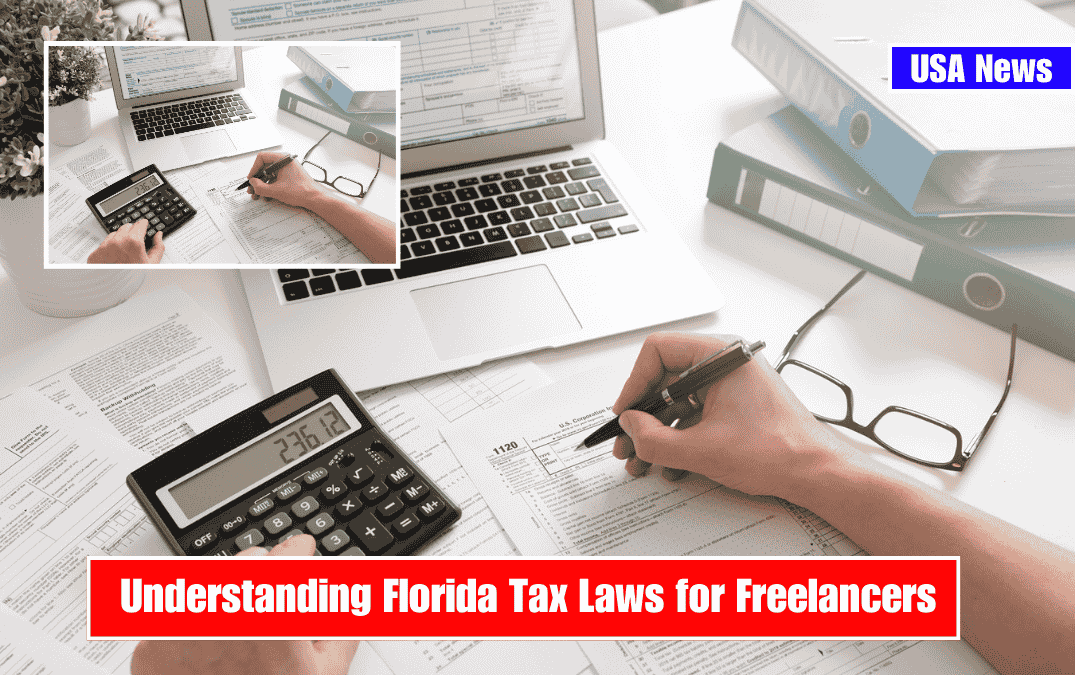Freelancers in Florida enjoy the benefits of working independently in a state with no personal income tax, but navigating self-employment taxes can be complex. Understanding federal obligations, deductions, and quarterly payments is essential for compliance and financial planning.
Federal Tax Obligations
Florida does not impose a state income tax, which is a relief for freelancers. However, self-employed individuals must pay federal taxes, including:
- Self-employment tax: This covers Social Security (12.4%) and Medicare (2.9%), totaling 15.3% of net earnings.
- Federal income tax: A graduated tax ranging from 12% to 37%, depending on income level.
Self-employment tax applies to anyone earning over $400 annually from freelance work. Unlike traditional employees whose employers cover half of Social Security and Medicare contributions, freelancers bear the full 15.3% themselves.
Quarterly Estimated Payments
Freelancers must make quarterly estimated tax payments if they expect to owe more than $1,000 for the year. Payments are due on April 15, June 15, September 15, and January 15. To calculate quarterly payments:
- Determine gross self-employment income.
- Subtract deductible business expenses to find net income.
- Multiply net income by 0.153 for self-employment tax.
For example, a freelancer with $100,000 in net income would owe $15,300 in self-employment tax annually.
Tax Deductions
Freelancers can significantly reduce their taxable income by claiming business-related deductions. Common deductible expenses include:
- Home office costs: If the space is used exclusively for business purposes.
- Travel and vehicle expenses: Including business mileage and airfare.
- Internet and phone bills: Necessary for business operations.
- Educational expenses: Classes or certifications directly related to the business.
- Advertising and marketing costs.
Additionally, freelancers can deduct half of their self-employment tax (7.65%) as an adjustment to gross income when calculating their adjusted gross income (AGI).
Sales Tax Obligations
While Florida does not impose VAT or state-level self-employment taxes, freelancers providing taxable goods or services may need to collect and remit sales tax:
- The state-wide rate is 6%, with local rates adding up to 2% in some areas.
- Sales taxes are reported using Form DR-15 and paid monthly to the Florida Department of Revenue.
Filing Taxes
Freelancers must file annual federal tax returns using Form 1040 along with Schedule C (to report income and expenses) and Schedule SE (to calculate self-employment tax). Income reported on Form 1099 from clients must be included in filings, along with any additional earnings not reported on these forms.
Practical Tips
To stay compliant:
- Set aside 25–30% of earnings for taxes throughout the year.
- Maintain accurate records of all income and expenses.
- Consult a CPA for optimized deductions and accurate filings.
Florida’s lack of state income tax simplifies some aspects of freelancing, but federal obligations remain significant. By understanding self-employment taxes, leveraging deductions, and adhering to quarterly payment schedules, freelancers can manage their finances effectively while avoiding penalties.
SOURCES:-
[1] https://www.selfemployed.com/self-employment-tax-guide-florida/
[2] https://remote.com/blog/contractor-taxes-florida
[3] https://gpworkspace.com/blog/tax-guide-for-freelancers-in-florida/
[4] https://www.taxsmith.com/blog/florida-self-employment-tax/
[5] https://www.everlance.com/blog/florida-self-employed-taxes












